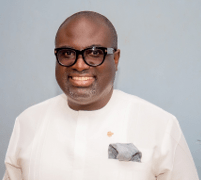By Edward Debrah, Chartered Environmentalist & Sustainability Professional, Immediate Past Chair – IOSH Ghana.
World Day for Safety and Health at Work will be celebrated globally. This day has been set aside to remind ourselves of the critical importance of protecting workers, promoting safe, healthy and dignified working conditions across all sectors.
In an era of digital transformation, with Artificial Intelligence (AI) and emerging technologies that are redefining the world of work, it is imperative to consider how workplace safety could be managed.
In the case of Ghana, this could be an exciting opportunity and a defining moment in reshaping how workplace safety could be managed if the benefits of digital tools and artificial intelligence are harnessed.
Digital Innovation in Safety
Globally, AI has enabled proactive risk identification, real-time hazard monitoring, fosters smarter, quicker and more sustainable decision-making. These technological advancements are beginning to take root in Ghana’s evolving industries – from Oil and Gas fields in the Western Region to construction sites across the country, manufacturing plants in Tema, Accra and Healthcare facilities in Accra, Kumasi and across the length and breadth of the country, technological innovation are supporting protect workers at workplaces.
Currently, we have seen:
- Predictive analytics identifying near-miss patterns before escalating into injuries.
- Wearables and smart sensors enhancing worker safety in hazardous environments.
- Drone technology and virtual training being used to deliver inspections and skills development. Zipline Ghana Limited’s use of drone for essential medical deliveries in Ghana and other parts of the world is an example. I have witnessed first-hand how the drone system works at their Anum and Suhum nests.
These tools are transforming Health, Safety, Environment and Quality (HSEQ) management not by replacing professionals, but by providing skills and improving competence of talents that supports human capabilities and fosters quicker, well informed decisions and offers protection for workforce.
Bridging the Digital Divide
While the benefits are clear, we must also confront the realities. Ghana’s labour market includes a significant informal sector, and many businesses, especially SMEs, remain digitally under-resourced. If left unaddressed, digitalisation could deepen inequalities and inadvertently exclude those who need protection the most.
There is urgent need to bridge the digital divide, ensuring that every worker be it formal or informal, can benefit from safer, tech-enabled working environments.
Ethical and Regulatory Imperatives
As we embrace digital tools, we must also be vigilant about the ethical dimensions they introduce. Data privacy, algorithmic bias, worker surveillance, and digital literacy must be considered thoughtfully. Ghana’s regulatory frameworks must evolve in tandem, ensuring our safety laws are fit for a digital-first future.
We must centre our transformation on human dignity and inclusion, creating systems that empower workers rather than monitor them excessively.
Priority areas for a Safer Ghana.
Today, I urge Ghanaian stakeholders, from Government, Employers, Academia, Industry Regulators, and Labour unions to fully support and provide resources for:
- Investing in digital capacity-building for safety professionals through accredited training and partnerships with global institutions.
- Updating safety legislation to reflect emerging technologies and modern risk profiles.
- Promoting indigenous innovation, supporting Ghanaian tech entrepreneurs to design homegrown, context-specific safety solutions.
- Fostering collaboration across sectors to share data, knowledge, and best practices for national safety resilience.
People rooted Vision
AI is not just a technological leap; it could drive cultural and organisational improvements for the better. It challenges us to think differently, act boldly, and build systems that focus on people, not just productivity.
As a Chartered Environmentalist and HSEQ Executive, I remain committed to advocating for inclusive, ethical, and forward-thinking safety leadership in Ghana.
On this global day of reflection, let us reaffirm our collective mission to make safety not a luxury or a checklist, but a fundamental right for every Ghanaian worker.
Let’s embrace the future without fear, but with preparedness, purpose, and partnership!
The writer is a Chartered Environmentalist and Sustainability Professional, Immediate Past Chair of IOSH Ghana, and a multi-award-winning HSEQ Executive with over a decade of cross-sectoral experience. He lectures, consults, and speaks globally on workplace safety, sustainability, and leadership.










